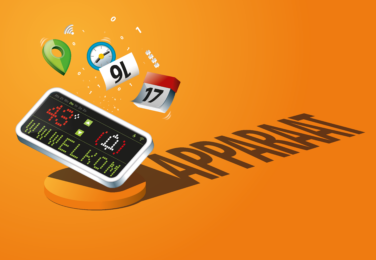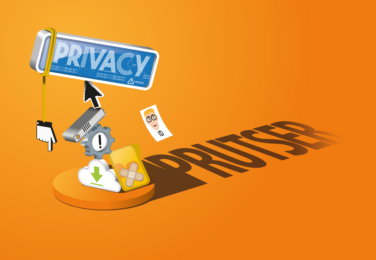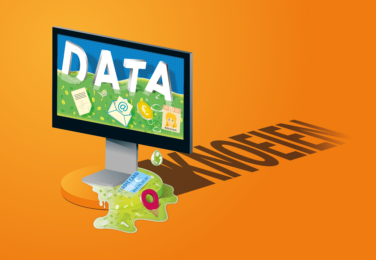Privacy and mobile apps
An app which shares your photos with friends, orders your dinner and measures your sporting achievements. And then there’s one with funny sounds. The game that you've already finished. And the one for your holidays. But, did you know that these apps can spy on you when you travel and listen and look at things? In other words, they always know where you are, what photos you have and even what you’re saying.
Keep your eyes open for snooper apps.
You had such a great time that evening. And you were more outspoken back then. A tagged video here, a reaction to a blog, tweet or old school project there… Anyone can use these to build a profile of you. Not one that you or a future employer will like, but one that will suit a hacker.
Be careful what you share on the lingernet.
Check your privacy settings
Every social media platform offers ways to control what information you share with whom. Check these settings regularly, as they are constantly changing. Check the privacy settings to determine how much you want to share with others and with the social media platform.
Be intentional with what you share
When was the last time you Googled yourself? If you do so regularly, you can see what information or images and videos of you are publicly available.
Set up a Google Alert for yourself so you are notified when a new item about you is posted online.
Don’t share sensitive information online
Don’t share personal information such as your phone number, home address, e-mail address or student number. If you must share that information, never do it through a social media platform and make sure you know who you are sharing it with and why they need the information.
Keep your eyes peeled for glue apps.
Our tips for dealing with sensitive data online
- Something once on the Internet or social media is hard to delete. Therefore, think carefully if you really want to share this post with the whole world.
- Be critical about sharing personal information. Think about your house number, street signs, the location of your school, doctor or home address.
- Never post a picture of an official document such as a driver’s license or passport on social media.
- Be cautious about posting photos that include children.
- Turn off the location feature: otherwise your photos will contain information about where you were at the time.
- Check your privacy settings regularly.
- Be careful when accepting friend requests. Fake accounts will try to access your data or your friends’ data.
- Keep business and private accounts separate, for example by using aliases on social media. And by limiting privacy settings for private accounts to people you really know.



